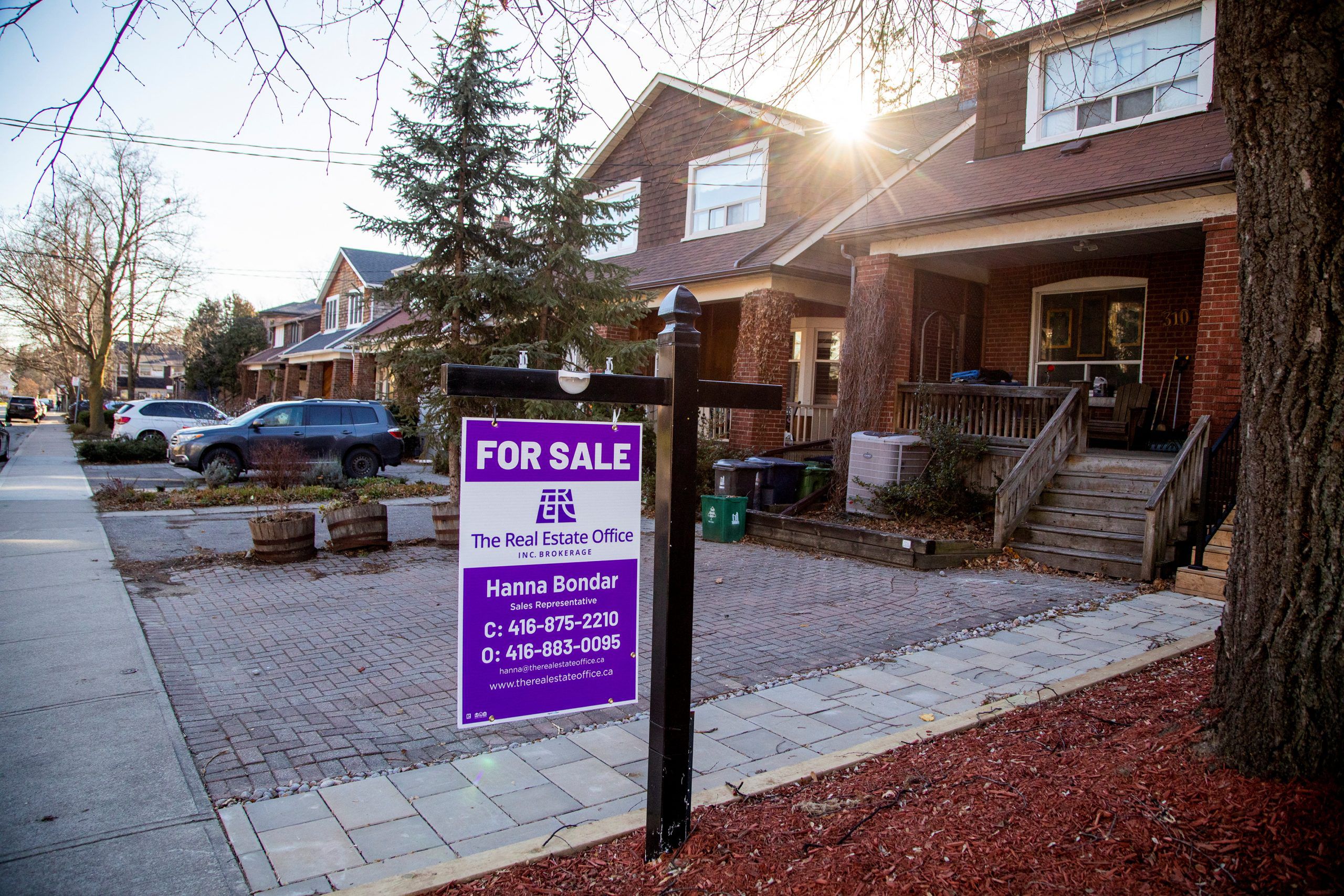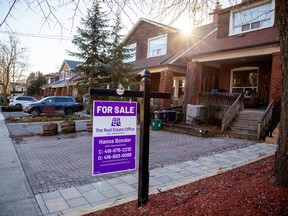
[ad_1]
Forecasts of a housing bust were grossly overstated, if not outright wrong

Article content
The year isn’t over yet, but housing sales in Canada have already surpassed the total sales registered in 2020, once again proving forecasts of a housing bust to be grossly overstated, if not outright wrong.
Advertisement
This advertisement has not loaded yet, but your article continues below.
Article content
Some 630,634 residential properties had already transacted by the end of November, topping the previous record of 552,423 sales in 2020, according to Canadian Real Estate Association (CREA) data.
An increase in prices accompanied the increase in sales. CREA’s quality- and size-adjusted house price index reported a year-over-year increase of 25.3 per cent in November. Prices grew at a much faster rate in smaller towns near populous urban centres. For example, the housing price index in Greater Vancouver increased 16 per cent year over year, while prices in Fraser Valley were up 30.3 per cent.
At the onset of the pandemic in 2020, many housing market forecasts painted doom and gloom by projecting sales and prices to decline. But the reverse has happened, and record high sales and prices are a familiar fixture of most regional housing markets.
Advertisement
This advertisement has not loaded yet, but your article continues below.
Article content

To forecast the future, one must first predict the past or, at the very least, determine why the gloomy housing market forecasts have proven to be so drastically wrong. Some explanations are readily apparent. First, governments globally decided not to let the pandemic kill the economy and responded with unprecedented stimuli, collectively injecting trillions of dollars into the economy. Canada was no exception. Income support programs and mortgage and rent relief during the early stages of the pandemic buttressed the residential real estate sector.
Ultra-low mortgage rates also made monthly mortgage payments very affordable even as housing prices climbed. As a result, new homebuyers rushed in, and existing homeowners traded up.
Advertisement
This advertisement has not loaded yet, but your article continues below.
Article content
Intelligent forecasters would have correctly anticipated the impact of quantitative easing and lower interest rates on housing markets. Indeed, some market observers were quick to warn such moves would put the Canadian housing market on steroids. What others missed is how the pandemic altered the valuation models for housing — a hitherto poorly understood phenomenon.
COVID-19 drastically increased the demand for homeownership and, as a result, working from home (WFH) increased the intrinsic value of housing. Housing is now an extension of one’s workplace, the last step on the last mile of online retailing, the rendezvous for one’s leisure and, intermittently, the classroom for one’s children.
Simply put, housing means much more now than it did before, so prices merely reflect the greater significance of dwellings in pandemic-infected markets.
Advertisement
This advertisement has not loaded yet, but your article continues below.
Article content
Therefore, higher sales and prices are essentially an outcome of the imbalance in the demand and supply of housing. In November, the sales-to-new listings (SNL) ratio was 77 per cent. Although that was slightly lower than the 79 per cent recorded in October, suggesting a slight decline in demand relative to supply, it was still much higher than the long-term average of 54.9 per cent.
What to expect in 2022? First, let’s look at the market fundamentals. Many would-be buyers who failed to outbid others in 2021 will re-enter the market next year. Moreover, the demand for housing will get an additional boost as immigration flows are expected to resume and the economy shows more profound signs of recovery.
Interest rates are expected to rise, but their impact on housing prices is likely to be modest. Short of a significant policy change resulting in tighter lending standards, the likely scenario for 2022 is an increase in housing prices, with demand continuing to outpace the supply. Royal LePage has already projected housing prices “ to rise strongly again in 2022 , however at a slower pace compared to 2021.”
Advertisement
This advertisement has not loaded yet, but your article continues below.
Article content
-

Average home price in Canada hits all-time high of $720,850
-

CMHC developing climate-risk score for real estate listings
-

Housing affordability should be a municipal concern, not just a national one
-

More action to address hot housing coming in budget, Ottawa says — but some are getting impatient
During a health and economic crisis, the strength and resilience of Canadian housing markets should have been a welcome sign. Still, and for understandable reasons, many are dismayed by the rapid increase in housing prices over the past 20 months. The disconnect between incomes and housing prices has been a source of great resentment for thousands of families.
However, the counterfactual scenario of falling housing prices and sales during the pandemic could have posed even greater hardship on Canadians, most of whom are homeowners, and housing is their largest investment and the preferred channel for savings.
Improving homeownership prospects for low- and mid-income households should be the goal for future government interventions. This, however, should not require a drastic drop in housing prices that would leave most Canadians worse off.
Financial Post
Murtaza Haider is a professor of Real Estate Management at Ryerson University. Stephen Moranis is a real estate industry veteran. They can be reached at the Haider-Moranis Bulletin website, www.hmbulletin.com .
Advertisement
This advertisement has not loaded yet, but your article continues below.
[ad_2]
Source link